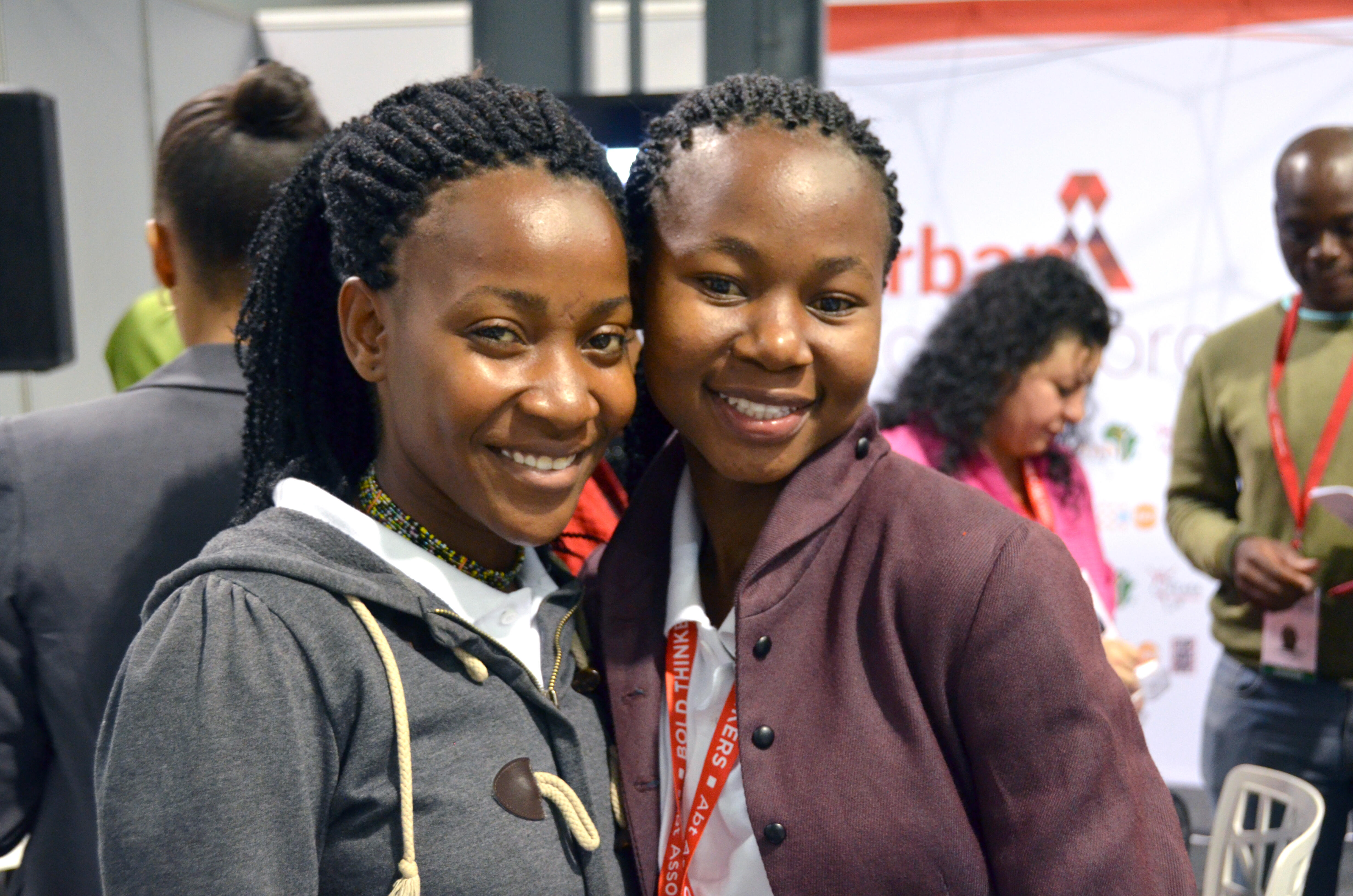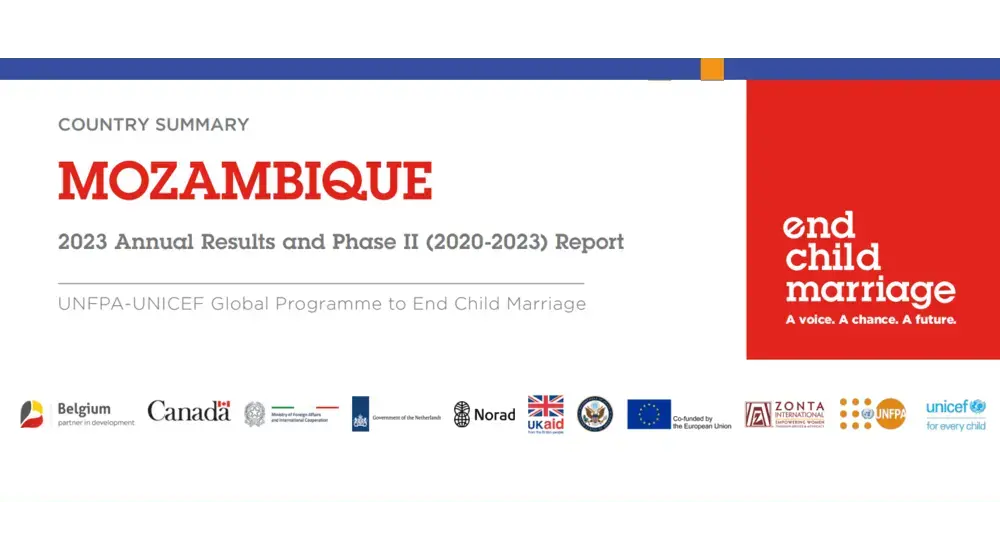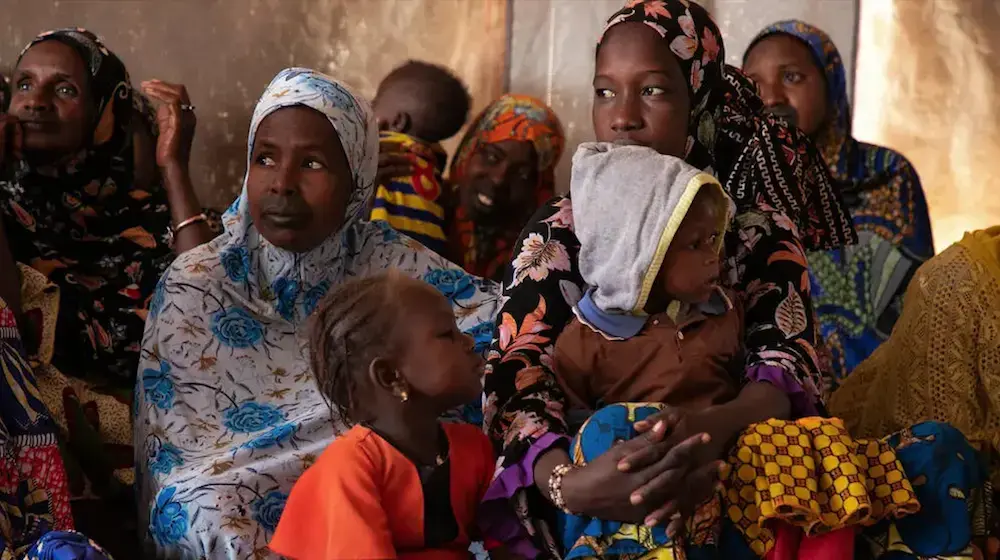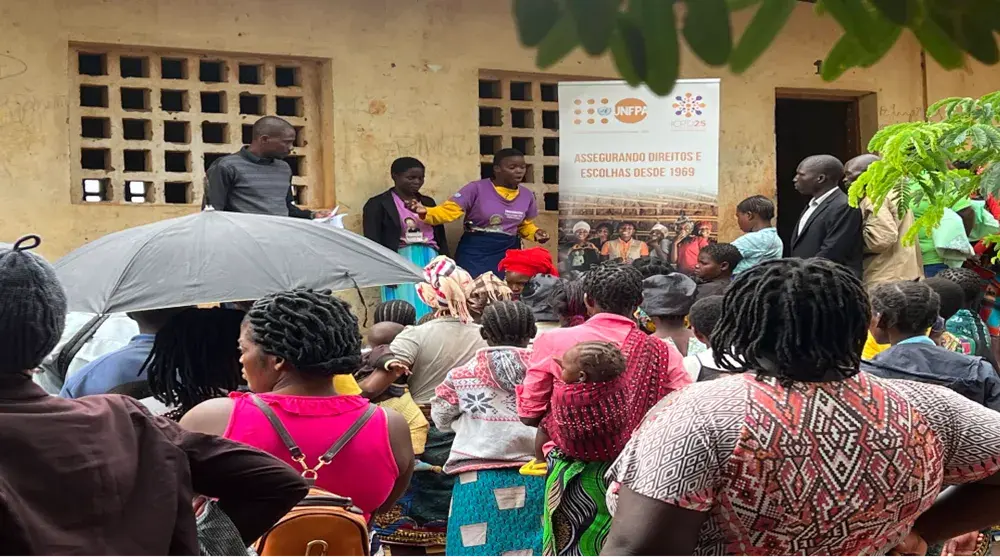“From the moment a girl is [forced into marriage], her wings are [clipped] and her dreams are [tainted] for the rest of her life,” shared Graça Machel, Sustainable Development Goals (SDG) Advocate and President of the Foundation for Community Development, during UNFPA Mozambique’s national launch of the 2020 State of World Population Report.
Moderated by a local TV network presenter, STV’s Carmelinda Manhiça, panelists and speakers invited by UNFPA Mozambique shared their insight and expertise to identify solutions and drive collective action to end child marriage during a virtual roundtable on 15 July. One of the key takeaways was shared by the President of the 3rd Commission of the National Assembly, Lucia Pedro Mafuiane, who emphasized that in order to make a real difference in the fight against child marriage we need to highlight the fact that this is a violation of human rights, and we must call it what it is: these are not marriages, they are forced unions.
Today, 33,000 girls will be married worldwide; 130 of them will be girls in Mozambique. Though nearly universally banned, child marriage robs the rights and futures of 12 million girls annually around the world. Household surveys (DHS 2011, IMASIDA 2015) uncovered that Mozambique has one of the highest prevalence rates of child marriage in Africa and in the world, with 1 in 2 girls being forced to marry before turning 18.
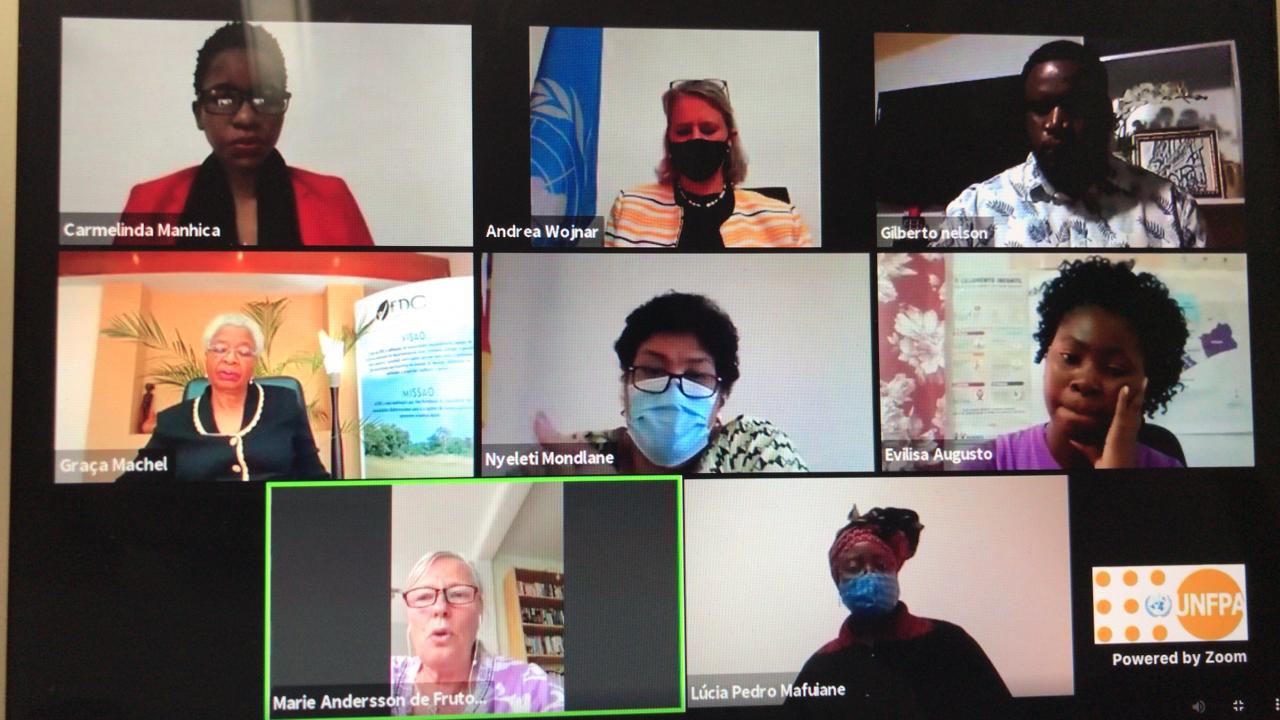
during the Virtual Round table ©Epidauro Manjate/UNFPA Mozambique
A complex mixture of social and cultural norms and socio-economic inequalities drives the occurrence of child marriage in Mozambique. Based on emerging evidence from the 2017 Census in Mozambique, the prevalence of child marriage is more than twice as high in rural areas (35% of ever married girls aged 15-17) than in urban areas (15%). In the context of Mozambique, the largest impact on the prevalence of child marriage is school attendance: girls who are in school are about eight times less likely to marry as a child compared to girls who have never attended or have left school (UNFPA Mozambique, 2020). Thanks to the advocacy of civil society and human rights organizations the issue has increasingly been recognized as a national priority – with the new law on the prevention of child marriage approved in Mozambique in July 2019.
The panelists, speakers and attendees agreed that a first key step is ensuring that all parties involved - parents, teachers, community leaders, police force, and others - are aware of the 2019 child marriage law and their role in preventing forced unions and mitigating its harmful effects. It is in everybody’s interest to get involved and it is particularly crucial for men in our society, particularly community leaders, to understand that if there is no consent, these unions can not be referred to as marriages. Panellists reinforced that these efforts are what is needed to improve the perception of the law and increase advocates for change.
Engaging key actors in the community is a crucial part of the fight against child marriage.
Participating in the virtual roundtable, Ambassador of Sweden, Marie Andersson de Frutos, emphasized the fact that “without the active participation of women, it is not possible to achieve sustainable development.” Women, alongside community influencers, are key agents of change that can raise awareness and adapt harmful social norms. Gilberto Macuacua, Social Activist, reinforced this point, stating that “social norms and community values are passed on to young girls via initiation rites that play a major role in influencing society towards premature marriages, with girls leaving initiation rites with the false idea that they are ready to serve men.” In order to change these harmful attitudes and behaviors, Gilberto and others emphasized that we must ensure that our efforts to do so include capturing the voices of boys and young men.
Young Mozambicans are ready to join the fight against forced unions
Youth activist and Rapariga Biz mentor, Evilise Augusto, was invited to share the perspective of a young Mozambican during the virtual roundtable, emotionally sharing that “there are girls who dream of being ambassadors or being like Mama Graça, but because of premature marriages these dreams are compromised.”
Evilise is one of 6,000 mentors in the Government-led initiative, Rapariga Biz, financed by the Governments of Sweden and Canada that has seen remarkable results in the prevention of child marriage. Less than 2% of girls within the programme married before the age of 19 in the two provinces, which rank among the provinces with the highest rates of child marriage in the country (61% in Nampula and 48% in Zambezia, according to DHS 2011).
Despite the COVID-19 pandemic, the Rapariga Biz mentors continue their efforts to raise awareness, prevent and respond to issues such as gender-based violence, early marriage and sexual exploitation and abuse. The programme has adapted to the situation by turning mentorship sessions into thematic community radio sessions co-led by the mentors, individual mentorship sessions via phone upon request, psychosocial support via phone, and preventive COVID-19 messages shared via digital channels. These efforts are more crucial now than ever.
Next steps in the effort to end child marriage
During her passionate intervention, Ms. Mafuiane stated that “as long as forced unions exist and persist in the world and in our communities, it will take away everyone's sleep.” Forced unions are a cross-cutting issue, and it is only by working together that we can accelerate action to ensure that the rights, choices and bodies of all girls are fully their own.
To conclude, Graca Machel stressed the need for concrete actions and expressed her willingness to participate in a “task force” to ensure that the stakeholders involved do not lose the momentum after the virtual meeting of like-minded leaders and activists. In her closing remarks, Minister of Gender, Children, and Social Action, Nyeleti Mondlane, reminded us that the time to act is now, stating that “as the Government responds to the pandemic, we are focusing our efforts on protecting women and girls and women-led households."
Sharing her concluding remarks, Andrea M. Wojnar, Resident Representative of UNFPA Mozambique, referenced insights from UNFPA’s 2020 SWOP report, sharing that: “it only costs $600 (40,000 Mozambican metical) to prevent one forced marriage. That is a very small amount when one considers what the impact will be on ending poverty and harmful practices in Mozambique. UNFPA reiterates its support to the Government and our civil society partners who are more committed than ever to end forced unions in Mozambique. Let's all be superheroes for the girls!”
END
*UNFPA’s 2020 State of World Population (SWOP) report entitled, "Against my will: defying the practices that harm women and girls and undermine equality,” examines the practices that harm women and girls and undermine equality, focusing on the three most prevalent harmful practices: child marriage, female genital mutilation and extreme bias against daughters in favour of sons. Of the harmful practices that UNFPA is committed to ending, child marriage is the most prevalent and relevant; it is a human rights violation that prevents girls from obtaining an education, enjoying optimal health, bonding with peers, maturing, and ultimately choosing their own life partners.

